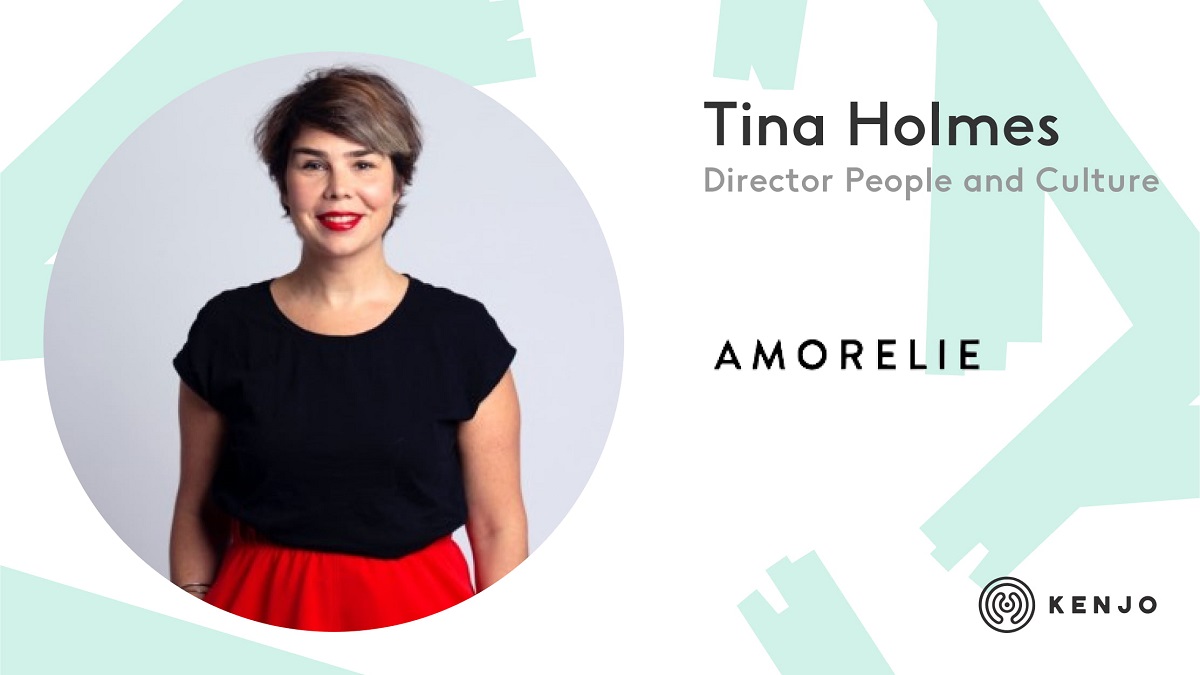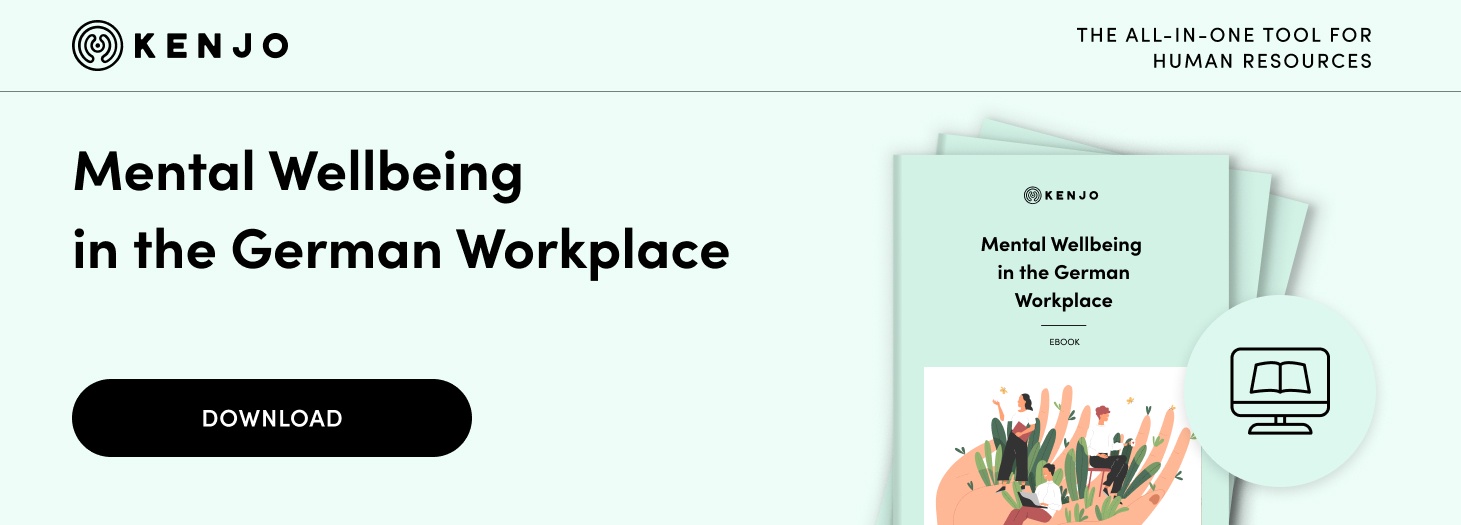Remote work and mental health - Interview with AMORELIE

Even though permanent remote work sounded like a great idea at first, sometimes the reality proved to be tougher than we could have imagined. As a result, increased remote working can sometimes create unhealthy working conditions, mental health concerns and restrictions for many employees.
According to a study by Aetna International, stress and weight gain have become the main symptoms of remote work for many. Similarly, 74 per cent of all workers - including 88 per cent of 18 to 24 year-olds - reported that their productivity was impaired due to poor mental health. 40% of employers fear that a lack of social interaction among colleagues will negatively impact the long term mental health of the organisation.
The data shows that work from home presents unique challenges that are quite different from working in an office. The transformation can be demanding, but also offers new opportunities. In this interview with Tina Holmes, Director People & Culture at AMORELIE, we talk about the importance of looking after the well-being of employees who are working from home and what AMORELIE provides for its employees.
As Director People & Culture at AMORELIE, Tina ensures that their employees feel happy by creating a culture where they can make mistakes, learn, grow from feedback and also give upward feedback. Most importantly, AMORELIE embraces peoples’ individuality. For example, one of their values is ‘‘Love your quirks”, and Tina’s quirk is “always trying to find a reason to celebrate in order to organise a party, which might also be one of the many reasons why I enjoy my profession in Human Resources so much.”
Why is it important to check up on the mental well-being of employees working remotely?
Since we are all spending a major part of our day at work, we as an employer are responsible for the team’s wellbeing and their mental health. During the last year, we and the entire world were in this extraordinarily challenging situation. We were all “Home Alone” with very little daily social interaction.
This affected pretty much everyone’s mental health, but presented itself in different ways. Everyone was developing coping mechanisms to find out how to manage the situation – and we made sure to continually support our employees to make sure they were as satisfied as possible.
How did remote working affect your employees’ mental health since the start of the pandemic?
We are conducting short weekly online surveys to measure employees' happiness. During the first months of the pandemic, the results were very negative, employees were unsure, maybe even scared about what would happen to their health and feared job security due to the general uncertainty that the world was in at that time.
To help them overcome these feelings and give stability, we implemented the following new ways of working:
- Quickly communicated updates.
- Changed our internal communication channels and content to keep all employees informed from a business perspective.
- On a cultural and social side, we tried various different remote events from remote wine tasting, pub quiz, cooking, even a comedy show.
- We introduced digital coffee breaks where people were randomly mixed every week to continue networking beyond their own departments and had an open Q&A session where employees could directly ask leadership all their questions.
Our efforts to keep up the team spirit resulted in an increase in employee satisfaction and the feedback we got was that “we care, listen and are there for our employees”’. This was great and kept us going.
What kind of wellbeing benefits do you offer your employees at AMORELIE to support mental health during remote work?
We openly discuss mental health and the fact that it is “ok to not be ok” and to not hold back in getting in touch with us if someone is going through a tough time.
For this, we also provide training sessions on how to give feedback and on skills needed for remote leadership. Mental unwellness can often be related to not “seeing” what is going on or misunderstanding words said.
Thus, learning how to express feedback is important. Leaders need to go deeper in catch-ups and leave more time to ask “how are you.” Seeing a person in the office and understanding moods, body language and expressions is usually a big part in understanding how the employees are currently doing. That’s why verbal communication and the right skill sets are so important in a remote work setup.
For people struggling to work from home, we made it possible for them to come into the office, while obeying all safety protocols to the fullest.
And then there is sport and exercise – a moving body leads to a moving mind. We offer our employees an Urban Sport Membership and host our Monday morning dance to kick off the new week in a fun manner.
What steps has your HR team taken to improve communication while working remotely?
We came up with four important steps to improve communication:
- We offered various coaching sessions: in team and 1:1 constellations and created leadership circles to exchange feedback on challenges
- Our office management, before was mostly in charge of daily office business, is now spreading fun and love through sharing memes, GIFs and stories on our team Slack channel to spread smiles throughout the day
- We encouraged the team, more than before, to use the public praise function in our employee tool to share recognition that is leading to increased employee i motivation
- We changed meeting structures and arranged meetings free time slots to focus on work and Icebreaker questions to warm up
Tell us about your Mental Health Month at AMORELIE
In Fall 2020 with the second wave hitting hard, we realised Covid-19 would still be there for a while. We knew that in December, despite the restrictions, it would be a fairly bearable month with Christmas and the holidays to look forward to.
But January is known as the long, dark and cold month and we anticipated that it would be extremely challenging for those working from home. We decided to dedicate this month to mental health and our employees’ wellbeing to kick off the new year on a positive note:
- Week 1: Motivation Workshop on finding out what our inner drivers with a coach
- Week 2: Stress Management Course offered by health insurance companies
- Week 3: Yoga and Meditation Classes
- Week 4: Walk and Run for a good cause
Since getting outside and keeping moving is so important for mental health, we coupled this up with giving back.For every kilometre walked or ran, we donated 1€ to a “Frauenhaus”, a shelter for women suffering from domestic violence. It was amazing to see everyone share their walks and we ended up making a real difference that resulted in a 1500€ donation to the Frauenhaus.
Why is mental health so hard to address at many organisations?
I don’t think it’s only mental health, it is worries altogether – challenges with childcare, separations, parents being sick and one having to change priorities. Mental load was one of the key topics of 2020.
Everyone wants to be strong and yet there are times in our lives that we just cannot perform 100%. But to hide these challenges, will make it worse. We in HR can help find solutions.
81% of workers say they would return to work if they can still work remotely for part of the week. How will you bridge this gap at AMORELIE when things get back to normal?
We are allowing all employees to stay at home until the end of August. Afterwards, we will change to Remote First, so all meetings will be held digitally if one person is not in the office.
Nevertheless, we will keep our offices open. One key learning from the past two years is that everyone works best under different circumstances. Some work best in a busy office with lots of people surrounding them, while others work best in a quiet room at home. And we will provide solutions for both preferences to keep our employees as happy as possible.
Thank you, Tina, for sharing these insights into the way AMORELIE protects the mental health of their remote workers having a hard time.
More about remote work and how to take care of your employees, you find on our blog:
About Tina Holmes

After working for companies like Sony, Apple and the DDB Agency, Tina Holmes is now the Director People & Culture at AMORELIE, a Berlin-based startup focussing on discovering how to enhance the happiness of their customers through sexual satisfaction.
On a daily level at AMORELIE, Tina is defining training needs, ensuring good performance reviews that are in line with their company objectives, developing agile working methods for their teams as well as defining and living their values, and ultimately, making sure that their employees are happy by creating a culture where they can make mistakes, learn, grow from feedback and give upward feedback.

